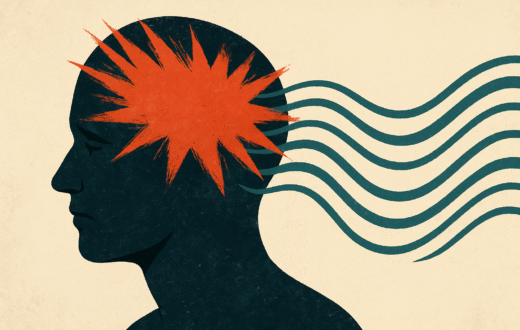How Brain Cells Intended to Help May Worsen Depression

Major Depressive Disorder (MDD) is a mental health condition that severely disrupts mood and leads to a loss of interest in previously enjoyable activities. Alongside cognitive impairments and forgetfulness, MDD can significantly hinder social and occupational functioning. Research indicates that several immune factors and brain cells like glial cells contribute to neuroinflammation, playing a role in the development of MDD.
Microglial cells, the primary immune cells of the Central Nervous System (CNS), drive inflammatory responses by releasing pro-inflammatory cytokines. While the neuroinflammatory role of microglial cells is well-established, the precise functions of astrocytes, a specialized type of glial cell, in brain development and neural growth have been less clear.
To better understand the involvement of astrocytes in neuroinflammation and MDD, Dr. Gaurav Singhal from the Department of Surgery at the University of Wisconsin, USA, led an extensive literature review published in Neuroprotection.
Explaining the motivation for the study, Dr. Singhal noted:
“MDD is one of the leading causes of disability worldwide, impacting over 280 million people of all ages. The economic burden is also significant, with annual costs in the United States alone exceeding $326 billion. Understanding the role of astrocytes in neuroinflammation could pave the way for new treatments for depression and other psychiatric disorders”.
The research team conducted a comprehensive search through databases like PubMed and Google Scholar, evaluating 226 papers on astrocytes, neuroinflammation, and depression. They followed the PRISMA guidelines to ensure the study’s rigor.
Their findings revealed that astrocytes are crucial for maintaining synaptic junctions between neurons. By releasing neurotrophic factors like Brain-Derived Neurotrophic Factor (BDNF) and Fibroblast Growth Factor-2, astrocytes promote neurite growth and synapse formation. Moreover, by regulating the ionic environment, astrocytes help ensure effective communication between neurons. Notably, morphological and functional changes in astrocytes were linked to reduced synaptic connectivity, which may underlie depressive symptoms.
The researchers also identified a key mechanism where activated microglia release pro-inflammatory cytokines such as Tumor Necrosis Factor-α (TNF-α) and Interleukin-1, prompting astrocytes to secrete additional inflammatory molecules, which exacerbates neuroinflammation.
Dr. Singhal elaborated on this cellular interaction:
“Elevated intracellular calcium in astrocytes triggers the release of adenosine triphosphate (ATP), which causes a delayed calcium response in microglial cells. Repeated cycles of ATP-mediated signaling ultimately lead microglia to undergo apoptosis”.
Additionally, preclinical mouse studies highlighted that the astrocytic enzyme Lactate Dehydrogenase A, responsible for lactate production, is essential for maintaining neuronal excitability. A process called histone lactylation, where lactate molecules attach to histone proteins, was shown to alter gene expression and contribute to astrocyte-driven neuroinflammation.
Overall, this study sheds light on the mechanisms by which astrocytes can shift from a neuroprotective role to one that promotes neuroinflammation by increasing the release of inflammatory cytokines, potentially worsening depression.





